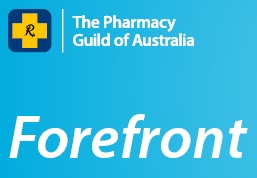Mar 08, 2016
Unprecedented stock management and cashflow challenges
Community pharmacies face a challenging nine months as the additional PBS reform savings that were required by the Federal Government during last year’s Sixth Community Pharmacy Agreement (6CPA) negotiations take effect.
On 1 April, the Government will, for the first time, reduce the price of a large number of F1 brand medicines by 5% as well as making very large price reductions to combination medicines. These reductions will be in addition to the normal round of Simplified Price Disclosure price reductions.
Furthermore, from 1 October, originator brands of drugs that have been F2 for more than three years will be excluded from the weighted average price calculations for the first time resulting in a further acceleration in the ratcheting down of the prices of off-patent medicines.
Importantly for pharmacies, the Administration, Handling and Infrastructure Fee (AHI) means they will continue to have a floor on their official dispensing remuneration.
However, the 1 April and 1 October cuts will further reduce the generic and wholesaler discounts available to pharmacies.
They will also deliver very large savings to the Federal Government, with the Guild calculating that the 1 April cuts alone will save the Government about $1.5 billion over the life of the 6CPA.
Given the breadth of the cuts affecting F1 medicines for the first time, and size of the catch-up price reductions to combination medicines, which on average exceed 60%, pharmacies will face arguably unprecedented challenges in effectively managing their stock.
Unless pharmacies can find ways to minimise their stock on-hand at the higher pre 1 April prices, their levels of PBS reimbursement for these medicines will be significantly less than the prices they have paid to purchase them, further exacerbating the impact of the price cuts.
It is therefore disappointing that all of the details of these significant, new 1 April price reductions were not released earlier, giving pharmacies sufficient time to work constructively with wholesalers and medicine suppliers in managing the transition to the new prices.
The Guild believes that medicine companies should work with pharmacies to minimise the amount of higher-priced stock stranded in pharmacies, including by supplying medicines in the lead-up to 1 April at post 1 April prices.
A number of generic medicine companies have already committed to this responsible and pragmatic approach and the Guild asks that the remainder follow suit.
Of course, the latest price cuts once again expose the fallacious claims by some commentators that somehow pharmacy is protected and is immune from wider health and economic reforms.
On the contrary, it is because of the ongoing sacrifices that continue to be made by pharmacies and the broader medicines supply chain, that the PBS remains by far the most fiscally sustainable part of Australia’s health system.
We frequently hear of near double-digit expenditure growth rates across the health system.
In stark contrast, PBS expenditure is flat or falling, with the Parliamentary Budget Office predicting below-GDP growth in the PBS through to 2025, in spite of the listing of a number of expensive drugs.
These high-cost drugs are also proving challenging for pharmacies.
The Guild has welcomed the 1 March listing on the PBS of the ground-breaking Hepatitis C medicines Daklinza®, Harvoni®, Sovaldi® and Ibavyr®.
However, the exceptionally high cost of these medicines (over $22,000 for Harvoni®, over $19,000 for Sovaldi® and nearly $8,000 for Daklinza®) has the potential to severely impact the cash-flow of community pharmacies.
The Guild is concerned that pharmacies, which are being asked to supply these medicines may be forced to take out expensive bank overdrafts making it prohibitive to dispense them to patients.
We have asked the Government to urgently address these cash flow issues, which include the requirement for pharmacies to pay GST of up to $2,000 per script, which can only be re-claimed in their monthly or quarterly BAS statements.
Unless these issues are addressed, there is a real risk that they could undermine one of the most important PBS listings in recent years.
